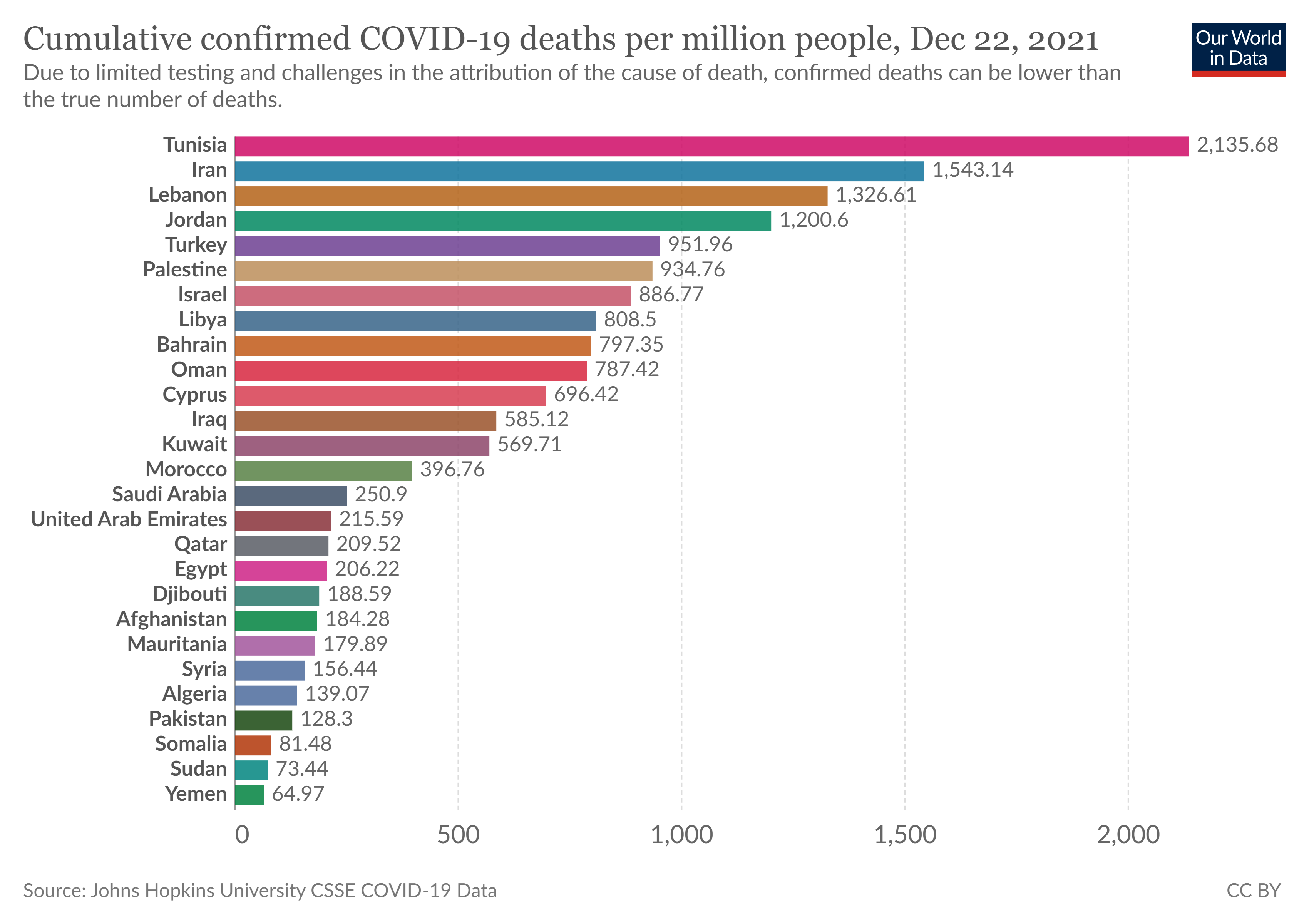Authorities in Tunisia on Wednesday began enforcing a presidential decree requiring all Tunisians and foreign visitors to carry COVID-19 vaccine passes, along with their identity cards, to access public and private spaces, such as cafés, banks, shopping centers, and state institutions.
The measure, announced by President Kais Saied on October 22, has garnered public opposition by protesters and criticism by the human rights organization Amnesty International. Dozens gathered in central Tunis on Tuesday and Wednesday to demonstrate against the decree, as they did several times over the past two months.
Amnesty International released a statement on its website Tuesday demanding that Tunisia refrain from enforcing what it called an “overly restrictive” vaccine pass.
“Some aspects” of the decree mandating use of the pass do “align with international law and World Health Organization (WHO) recommendations,” the rights group said, but “the Tunisian authorities must not implement the new decree-law until they have amended it to ensure the vaccine pass requirements do not violate international human rights law by needlessly threatening the livelihoods of Tunisians by inflicting unduly harsh penalties for noncompliance.”
The group said it had “extensively analyzed” the decree and found that it “bans public sector and salaried private sector employees from working until they are able to obtain a vaccine pass, with their employers ordered not to pay wages for during the period of suspension. The authorities are also mandated to order businesses that fail to enforce the vaccine pass requirements, with the exception of private health facilities, to close for up to 15 days.”
The organization noted that Tunisia is already suffering a severe economic crisis, and that access to public health care, including the vaccine, is unevenly distributed in the country, with the poor most negatively affected.
Tunisia has been particularly hard hit by the coronavirus pandemic.
It has experienced by far the highest number of confirmed deaths from the virus, relative to its population, among countries in the Middle East and North Africa, with 2,135.68 people per million population dying in the pandemic. This is more than 38% higher than in the country with the second-highest number of deaths per million, Iran.

Tunisia also has a relatively high case fatality rate, the ratio of confirmed deaths to confirmed cases, which stands at 3.53%. The case fatality rate across the world is 1.94%.
So far, however, Tunisia seems to have avoided the omicron-fueled surge in new cases that has affected many other countries. It registered only about 139 weekly confirmed cases per million people as of Dec. 22. This was well below the worldwide figure of 627 confirmed cases per million population for the same period. In the MENA region, eleven countries had higher numbers, including Cyprus, which registered a sobering 5,365 confirmed cases per million population for the same period.
It should be noted, however, that the number of confirmed cases is significantly affected by testing rates. Testing in Tunisia has been deficient; the country has only administered about 274 COVID-19 tests per 1,000 population over the course of the pandemic. On Dec. 22, its seven-day rolling average was 0.4 tests per day per 1,000 population. The testing champion in the MENA region, Cyprus, has cumulatively administered about 75 times as many tests per 1,000 people over the course of the pandemic. Its seven-day rolling average on Dec. 22 was 93.14 tests per day per 1,000 population – about 233 times as many, relative to population size, as in Tunisia.
As of December 20, 46.26% of Tunisians were fully vaccinated against the coronavirus, a figure just below the world vaccination rate of 47.91%. Eleven countries in the MENA region have higher vaccination rates, with the United Arab Emirates (90.28% fully vaccinated) in top position.
Here are the latest COVID-19 numbers for the Middle East and North Africa as of 4:15 pm Greenwich Mean Time (UTC±0) on Thursday.
| Country | Confirmed Cases | Deaths | Recovered | Active Cases |
| Afghanistan | 157,878 | 7,346 | 145,355 | 5,177 |
| Algeria | 215,430 | 6,205 | 148,217 | 61,008 |
| Bahrain | 278,875 | 1,394 | 276,672 | 809 |
| Cyprus | 147,685 | 624 | 124,370 | 22,691 |
| Djibouti | 13,546 | 189 | 13,316 | 41 |
| Egypt | 377,960 | 21,500 | 314,452 | 42,008 |
| Iran | 6,179,817 | 131,262 | 6,019,343 | 29,212 |
| Iraq | 2,091,834 | 24,108 | 2,061,781 | 5,945 |
| Israel | 1,360,098 | 8,239 | 1,341,898 | 9,961 |
| Jordan | 1,045,714 | 12,329 | 981,010 | 52,375 |
| Kuwait | 414,413 | 2,466 | 411,178 | 769 |
| Lebanon | 705,477 | 8,980 | 650,789 | 45,708 |
| Libya | 384,005 | 5,635 | 372,336 | 6,034 |
| Mauritania | 40,239 | 859 | 38,858 | 522 |
| Morocco | 953,724 | 14,817 | 936,960 | 1,947 |
| Oman | 304,984 | 4,113 | 300,235 | 636 |
| Pakistan | 1,292,406 | 28,894 | 1,254,104 | 9,408 |
| Palestinian Territories | 437,326 | 4,616 | 428,691 | 4,019 |
| Qatar | 247,269 | 614 | 244,316 | 2,339 |
| Saudi Arabia | 551,749 | 8,868 | 540,506 | 2,375 |
| Somalia | 23,169 | 1,333 | 12,903 | 8,933 |
| Sudan | 46,037 | 3,298 | 38,292 | 4,447 |
| Syria | 49,911 | 2,859 | 31,476 | 15,576 |
| Tunisia | 721,797 | 25,491 | 694,517 | 1,789 |
| Turkey | 9,228,835 | 80,957 | 8,858,445 | 289,433 |
| United Arab Emirates | 746,557 | 2,154 | 739,616 | 4,787 |
| Yemen | 10,105 | 1,981 | 7,002 | 1,122 |
| Total | 28,026,840 | 411,131 | 26,986,638 | 629,071 |